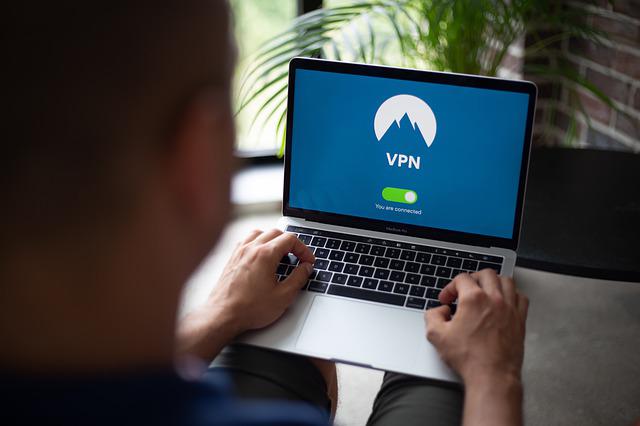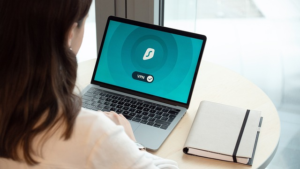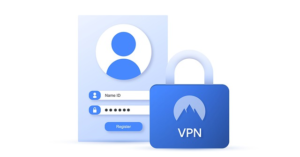
KEY TAKEAWAYS
- 57% of cyberattacks occurred while using a VPN
- Only half of all respondents say they use a VPN on public Wi-Fi
- 42% of workers report using their work VPN for personal streaming
Data has become the most valuable resource on the planet, and yet, unlike most precious commodities, there’s no shortage of it—and for millions of hackers, it can be easy to find. The internet is a deep source of rich information, housing everything from our personal photos, phone numbers and email addresses to our home addresses, banking information, private conversations and online behavior.
Those without a virtual private network (VPN) are not only more vulnerable to attacks and security breaches, but also pay more for flights and hotels, thanks to dynamic pricing, and are blocked from their favorite streaming services while traveling in certain countries.
With more online activity—and sensitive data—than ever before, it’s no surprise that using a VPN has become an absolute must. But are VPNs safe and do they really provide protection, or do they really just provide a false sense of security?
Featured Partners
Monthly Pricing
$11.95/Month
Monthly Pricing
$8.32/Month
3
Private Internet Access
Monthly Pricing
$3.33/Month
3
Private Internet Access
Learn More
On Privateinternetaccess.com’s Website
Unlimited Encryption
AES-256
VPN Usage Is on the Rise—But So Are Cyberattacks in 2022
Cyberattacks are constantly in the news, but it’s not just global corporations and public figures who are under attack as the headlines might imply. Statistically, businesses are the prime target as they present more to gain for a hacker, but that doesn’t mean individuals don’t present hackers with an easy point of entry into larger entities. In fact, small businesses are three times more likely to be targeted by cybercriminals than larger companies.
With more people working from home and using personal devices for professional purposes, individuals are increasingly being targeted. And due to easy access, the number of attacks on small businesses is on the rise—as are the losses due to attacks.
The total reported losses due to internet crime, according to the FBI’s 2021 Internet Crime Report, has increased 49% from 2020 to 2021, now accounting for $6.9 billion in losses. That’s nearly a fivefold increase in the last five years alone.
What Exactly Is a VPN, and Why Are They Important?
If you’re not entirely sure what exactly a VPN is, you’re not alone. In our survey, 43% of respondents could not confidently say they understand what a VPN is—despite that over 60% of the U.S. population reportedly uses a VPN, according to VPN usage data from Statista.
A VPN, or virtual private network, is a service that anyone can use—and anyone who uses the internet should use—to help protect your internet connection and personal privacy while online. When using a secure VPN, your data is encrypted, keeping it private from prying eyes and further protecting you and your data from hackers.
Though the number one reason why users reported using a VPN was online safety and security, VPNs also offer a myriad of other benefits. VPNs can block online tracking that can drive up the price of online purchases, such as flights and hotels, enable torrenting, hide your IP and even unblock streaming services while traveling.
Do VPNs Provide Real Protection or a False Sense of Security?
For many, the idea of having a VPN provides peace of mind. But is it justified or simply smoke and mirrors? The best VPNs are secure, which undoubtedly add a layer of online security. However, a VPN can’t protect against any and every potential cyber threat so, while they are smart to have, this shouldn’t be where your online security measures stop. It’s not just which VPN you use that matters, but how, when and where you use it that can make a difference.
Over 50% of Cyberattacks Occurred While Using a VPN
Despite using a VPN, 57% of respondents said that they experienced a cyberattack. While this might raise eyebrows at first glance, the reality is that a VPN can only help prevent against certain kinds of attacks. For example, malware is the most common type of cybersecurity attack and yet, a VPN can’t stop you from clicking on malicious links and installing malware. In fact, human error remains a leading cause of cyberattacks, according to a study by Stanford.
Just 6% of Respondents Use a VPN To Protect Their Employer’s Data
The lines between work and play have blurred since the widespread adoption of remote work. And while 66% of respondents use a VPN to help protect their personal data, only 6% said they use a VPN to protect their employer’s data.
Only Half of All Respondents Say They Use a VPN on Public Wi-Fi
A key benefit of using a VPN is preventing hackers from nabbing your sensitive data should an otherwise secure connection drop. And yet only 50% of respondents use a VPN while on public Wi-Fi.
Over 40% of Workers Report Using Their Work VPN for Personal Streaming
While most users report that they use a VPN to protect their own personal data, those who do not have a VPN are still likely to use their employer’s VPN for personal streaming. In other words, those who do have a VPN at home are drawn to use their employer’s VPN—not for safety, but to access geo-restricted content on top streaming services.
Moving the Dial Towards Online Safety
VPNs are a fundamental must-have in 2022. Granted, anyone looking to move the dial further and feel safer while online should employ additional security measures. From staying on top of phishing scams to using an antivirus software and using a different email address (as well as different passwords) for your various accounts, it’s important to safeguard sensitive information using the leading cybersecurity tips and tools available.
Survey Methodology
This online survey was of 2,000 U.S. adults and was commissioned by Forbes Advisor. It was conducted by OnePoll, a market research company, in accordance with the Market Research Society’s code of conduct with a margin of error of +/- 2.2 points and 95% confidence. This survey was overseen by the OnePoll research team, which is a member of the Market Research Society (MRS) and has corporate membership with the American Association for Public Opinion Research (AAPOR). For complete survey methodology, please contact [email protected].
Information provided on Forbes Advisor is for educational purposes only. Your financial situation is unique and the products and services we review may not be right for your circumstances. We do not offer financial advice, advisory or brokerage services, nor do we recommend or advise individuals or to buy or sell particular stocks or securities. Performance information may have changed since the time of publication. Past performance is not indicative of future results.
Forbes Advisor adheres to strict editorial integrity standards. To the best of our knowledge, all content is accurate as of the date posted, though offers contained herein may no longer be available. The opinions expressed are the author’s alone and have not been provided, approved, or otherwise endorsed by our partners.
Was this article helpful?
Thank You for your feedback!
Something went wrong. Please try again later.
The Forbes Advisor editorial team is independent and objective. To help support our reporting work, and to continue our ability to provide this content for free to our readers, we receive compensation from the companies that advertise on the Forbes Advisor site. This compensation comes from two main sources. First, we provide paid placements to advertisers to present their offers. The compensation we receive for those placements affects how and where advertisers’ offers appear on the site. This site does not include all companies or products available within the market. Second, we also include links to advertisers’ offers in some of our articles; these “affiliate links” may generate income for our site when you click on them. The compensation we receive from advertisers does not influence the recommendations or advice our editorial team provides in our articles or otherwise impact any of the editorial content on Forbes Advisor. While we work hard to provide accurate and up to date information that we think you will find relevant, Forbes Advisor does not and cannot guarantee that any information provided is complete and makes no representations or warranties in connection thereto, nor to the accuracy or applicability thereof. Here is a list of our partners who offer products that we have affiliate links for.
Source: https://www.forbes.com/advisor/business/business-vpn-users-safety/


